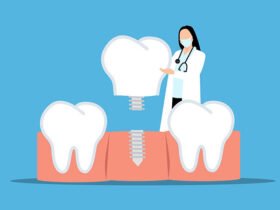Have you ever wondered if there’s a fast-acting solution for mental health struggles that traditional treatments don’t always solve? Many people suffer from conditions like depression and anxiety, often finding little relief from standard medications.
That’s where ketamine comes in- a once-controversial drug that’s now offering hope to many. But how does it work, and is it safe?
In this guide, we’ll explore how ketamine is used for mental health, its benefits, risks, and what you need to know before considering it. Keep on reading!
What Is Ketamine?
Ketamine is a drug that was first created in the 1960s to make surgeries less painful. Over time, researchers found that it also had strong effects on mental health and mood.
Ketamine works much faster than most antidepressants, often within hours. This makes it a good choice for people who haven’t gotten better with other treatments.
It is often used in clinics and hospitals with medical supervision. The FDA has approved a nasal spray form to be used to treat depression.
But other kinds are still thought of as off-label treatments. Knowing what ketamine is can help you decide if you want to use it or not.
How Does Ketamine Work in the Brain?
Ketamine is not the same as other antidepressants because it doesn’t work on serotonin or dopamine. Glutamate is a neurotransmitter that changes how the brain works and is very important for brain plasticity. In other words, it helps the brain make new connections, which makes it easier to break bad thought patterns.
A lot of experts think that this process helps explain why it works so quickly to treat depression. Medicines usually take weeks to work, but ketamine usually starts to help within hours or days.
This one-of-a-kind mechanism makes it a promising choice for people with depression that doesn’t respond to other treatments. Long-term effects and possible benefits are still being studied by researchers.
Conditions That Ketamine Can Treat
Most of the time, ketamine is used to treat depression when other methods have not worked. Researchers have also found that it can help people with PTSD, anxiety disorders, and even OCD.
Some people who have chronic pain say that ketamine infusions help their mental health as well. The treatment is especially helpful for people who are having suicidal thoughts because it can help them feel better quickly.
However, it’s not a cure, and most people need to keep getting treatment. Ketamine can have different effects on different people, so it is best to use it under medical supervision. Before considering this treatment, you must talk to a professional.
The Different Forms of Ketamine Treatment
There are different ways to get ketamine treatment, and each has its pros. In intravenous (IV) infusion, the drug is given through a vein. This is the most common type.
Esketamine nasal spray is another choice. It has been approved by the FDA to help with depression. One way to get an intramuscular injection is to get a shot in the muscle.
There are also lozenges that break down in your mouth, but people don’t use them as often. How well and how quickly each method works are different.
Based on your needs, a doctor will suggest the best option. For safety, use must be under the supervision of a doctor.
What to Expect During a Ketamine Session
Most ketamine sessions last between forty minutes and an hour. Medical professionals keep a close eye on patients to make sure they are safe.
Some people have mild hallucinations, a dream-like state, or a sense of being detached during the infusion. Most of the time, these effects go away after a few hours.
Patients are told not to drive or use machinery for the rest of the day after treatment. A lot of people say they felt better right away, but for long-lasting results, they usually need more than one session. It’s very important to do what your doctor tells you during the whole process.
The Benefits of Ketamine for Mental Health
One of the best things about ketamine treatment is that it works quickly to help. Normal medicines can take weeks to work, but ketamine can start to work in hours or days. This is very helpful for people who are very depressed or who are thinking about suicide.
It can also lift your mood, lower your stress, and make you stronger emotionally. After treatment, a lot of people say they feel better and more interested in life.
It’s also helpful because it works even when other treatments haven’t. Ketamine may also help fix brain connections that are broken. It’s important to weigh these benefits against the risks, though.
The Potential Risks and Side Effects
Ketamine can cause side effects, just like any other drug. Some common side effects are feeling dizzy, sick, or having high blood pressure.
Some people have hallucinations or dissociation, which is the feeling of not being in touch with reality. After treatment, these effects usually go away in a few hours.
The risks of using ketamine over and over again in the long term are still being looked into. Ketamine is also sometimes used for fun, so there is a chance that it will be abused.
Medical supervision helps lower the risks and make sure the drug is safe to use. Before starting treatment, it’s important to talk to your doctor about any worries you have.
The Cost of Ketamine Treatment
It can be pricey to get ketamine therapy because insurance doesn’t always cover it. The price changes based on the clinic, where it is located, and how it is given.
Most of the time, IV infusions cost the most, between $400 and $800 per session. Nasal spray treatments may be less expensive, but they still need to be overseen by a doctor.
Some clinics offer payment plans or ways to get help with money. Before making a decision, it’s important to think about both the costs and the possible benefits.
You can make a better decision if you look into different clinics and ask about prices. It’s also a good idea to check your insurance policies.
How Long Do the Effects Last?
The way ketamine treatment works for each person is different. Some people feel better after a few days, while others may need extra sessions.
Many times, a full course lasts for a few weeks and includes several treatments. After the first phase is over, you may need to do maintenance treatments.
The long-term benefits depend on how the person reacts to the medicine. To make sure treatment is working, it’s important to see a healthcare provider regularly.
When used with therapy or other mental health treatments, ketamine can have a bigger effect. Making changes to how you live may also help the benefits last longer.
How to Find a Reputable Ketamine Clinic
It is important to pick the right ketamine clinic to make sure you have a safe and effective experience. You should look for a clinic that focuses on mental health treatments and has trained medical staff.
Check out reviews from past patients and ask about their safety measures. Another good idea is to set up a meeting to talk about your worries and hopes.
Stay away from clinics that make false claims or aren’t clear about how they do things. A clinic with a good reputation should put the safety of its patients first and be clear about how the treatment will work.
Combining Ketamine with Other Therapies
Other mental health treatments work better when used with ketamine. According to a lot of experts, it works best when used with psychotherapy.
Brain-based therapy (CBT) can help people deal with their feelings and think more clearly. Ketamine therapy can work better if you make changes to your lifestyle, like eating differently and working out regularly.
Self-awareness practices can help some people keep their emotions in check. Users can get the most out of ketamine treatment over time by using more than one method.
The Future of Ketamine in Mental Health Care
Researchers continue to study ketamine’s potential for treating various mental health conditions. Some studies suggest it may help individuals with OCD, eating disorders, and even substance abuse disorders.
Scientists are also exploring new ways to make ketamine more accessible and effective. Future advancements could lead to improved formulations and delivery methods.
As research progresses, ketamine therapy for depression and other conditions may become more widely accepted. This could open doors for more people struggling with mental health challenges.
Should You Consider Ketamine Therapy?
Deciding whether ketamine is right for you depends on multiple factors. If traditional treatments haven’t worked, ketamine might be worth exploring.
However, it’s essential to weigh the benefits and risks carefully. Consulting a mental health professional can help you determine if this treatment aligns with your needs.
Keep in mind that ketamine is not a cure but a tool to aid in recovery. With the right guidance, it can be a powerful part of a comprehensive mental health plan.
Treating Mental Health with Ketamine Therapy
People who are having trouble with their mental health may benefit from using ketamine as a treatment. It works quickly to ease the pain, helps the brain heal, and might help people who haven’t responded to other treatments.
There are, however, some risks, and it’s very important to get treatment while being supervised by a professional. Check with a doctor to see if ketamine therapy is right for you if you’re thinking about it.










